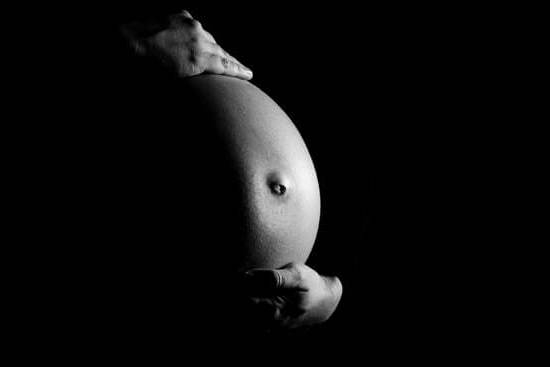Quinoa, a nutrient-dense grain that has been cultivated for thousands of years in the Andes region of South America, is gaining popularity as a superfood for expectant mothers. In this article, we will delve into the history and origin of quinoa, explore its nutritional benefits, and highlight its specific advantages for pregnant women.
First, we will take a closer look at the ancient grain of quinoa, tracing its roots and historical significance. Next, we will discuss the various nutrients and vitamins found in quinoa, shedding light on its potential to support a well-balanced diet during pregnancy. We will also delve into the importance of maintaining proper nutrition during pregnancy and how quinoa can contribute to meeting the dietary needs of expectant mothers.
Furthermore, we will explore how quinoa can be incorporated into delicious and nutritious recipes suitable for pregnant women. Additionally, we will address any concerns or misconceptions about consuming quinoa during pregnancy by providing valuable insights on its safety for expectant mothers. Stay tuned as we uncover the exceptional nutritional value of quinoa for pregnant women in this comprehensive guide.
The Nutritional Benefits of Quinoa
Quinoa, often referred to as a “superfood,” is not only delicious but also packed with essential nutrients that are beneficial for overall health. This ancient grain, which is native to the Andean region in South America, has been a staple food for thousands of years. Quinoa is not only gluten-free but also rich in protein, fiber, and various vitamins and minerals, making it an excellent choice for pregnant women.
Protein and Amino Acids
One of the key nutritional benefits of quinoa is its high protein content. In fact, it contains all nine essential amino acids, making it a complete protein source. During pregnancy, adequate protein intake is crucial for the development of the baby’s organs and tissues. Additionally, protein plays a vital role in supporting the mother’s growing uterus and breasts.
Fiber and Digestive Health
Quinoa is also an excellent source of dietary fiber, which can help prevent constipation, a common issue during pregnancy. Fiber supports digestive health and can contribute to overall well-being. Incorporating quinoa into the diet can help pregnant women maintain regular bowel movements and alleviate discomfort associated with digestive issues.
Vitamins and Minerals
In addition to protein and fiber, quinoa is rich in various vitamins and minerals that are essential for both maternal and fetal health during pregnancy. It contains significant amounts of folate (vitamin B9), iron, magnesium, and zinc. Folate is particularly important for preventing neural tube defects in the developing baby.
Iron is crucial for preventing anemia in expectant mothers. Meanwhile,magnesium plays a role in regulating blood sugar levels and blood pressure. Lastly,Zinc contributes to immune function as well as cell growth and division.
Incorporating quinoa into a well-balanced pregnancy diet can provide expectant mothers with these vital nutrients while offering versatility in meal planning.
Pregnancy Nutrition
During pregnancy, maintaining a well-balanced diet is crucial for the health of both the mother and the developing baby. A nutritious diet can help ensure that the baby receives all the essential nutrients needed for healthy growth and development, while also supporting the overall health and well-being of the mother. It’s important to consume a variety of foods that provide essential nutrients such as protein, fiber, vitamins, and minerals.
Here are some key aspects to consider when discussing pregnancy nutrition:
- Folic Acid: Folic acid is important for preventing neural tube defects in babies. Foods rich in folic acid include leafy greens, citrus fruits, beans, and fortified grains.
- Protein: Protein is essential for the growth of fetal tissues, including the brain. Good sources of protein include lean meats, poultry, fish, eggs, dairy products, beans, and legumes.
- Calcium: Calcium is important for bone health in both the mother and baby. Dairy products like milk, yogurt, and cheese are excellent sources of calcium. Other options include fortified plant-based milk alternatives and leafy greens like kale and broccoli.
Incorporating quinoa into a pregnancy diet can be highly beneficial due to its nutritional content. Quinoa is a complete protein source and contains all nine essential amino acids. It also provides fiber, iron, magnesium, folate (a form of folic acid), and other vitamins and minerals that are essential during pregnancy. Its versatility allows for various delicious and nutritious recipes tailored to meet the specific dietary needs of expectant mothers.
Quinoa as a Pregnancy Superfood
Quinoa, a nutrient-packed whole grain, is gaining popularity as a superfood for expectant mothers due to its exceptional nutritional profile. Rich in essential vitamins, minerals, and protein, quinoa offers numerous benefits for the health of both the mother and her developing baby.
One of the key reasons why quinoa is considered a pregnancy superfood is its high protein content. Protein is crucial during pregnancy as it supports the growth and development of the fetus and helps in building new tissues. Additionally, quinoa contains all nine essential amino acids, making it a complete protein source, which is rare in plant-based foods. This makes it an excellent choice for vegetarian or vegan mothers looking to meet their protein needs.
Furthermore, quinoa is an abundant source of iron and fiber, both of which are important for pregnant women. Iron helps prevent anemia and supports the production of red blood cells, while fiber aids in digestion and can help alleviate common pregnancy discomforts such as constipation. These nutritional benefits make quinoa an ideal addition to a well-balanced pregnancy diet.
Incorporating quinoa into meals during pregnancy can be easy and enjoyable. From breakfast porridge to colorful salads and hearty soups, there are countless delicious recipes that feature this versatile grain. When prepared with other nutrient-dense ingredients like vegetables, fruits, and healthy fats, quinoa can contribute to a wholesome diet that supports the overall well-being of expectant mothers.
| Nutrient | Amount Per 100g |
|---|---|
| Protein | 14g |
| Iron | 8mg |
| Fiber | 8g |
Quinoa Recipes for Pregnant Women
Quinoa is an incredibly versatile and nutritious grain that can be a valuable addition to any pregnancy diet. Packed with essential nutrients like iron, folate, and protein, quinoa offers numerous health benefits for expectant mothers. Incorporating quinoa into your meals during pregnancy can help ensure that you are getting the vital vitamins and minerals needed for a healthy pregnancy.
One delicious way to enjoy quinoa during pregnancy is by making a refreshing quinoa salad. Combining cooked quinoa with a variety of fresh vegetables such as cucumbers, cherry tomatoes, and bell peppers can create a colorful and satisfying dish that is rich in vitamins and fiber. Adding a light vinaigrette dressing made from olive oil, lemon juice, and herbs can bring out the flavors of the ingredients and make for a delightful meal.
Another fantastic recipe idea for pregnant women is to use quinoa in place of rice or pasta in traditional dishes such as stuffed peppers or casseroles. Quinoa’s nutty flavor and slightly chewy texture blend perfectly with savory ingredients like ground turkey or chicken, creating a filling and nutrient-dense meal that is easy to digest. Additionally, substituting quinoa for refined grains can help stabilize blood sugar levels, which is especially important during pregnancy.
A mouthwatering breakfast option featuring quinoa is a warm porridge made with almond milk, cinnamon, and fresh fruit. This cozy dish provides an excellent source of protein and fiber while also giving expectant mothers the energy they need to start their day off right. The versatility of quinoa allows pregnant women to experiment with different flavors and ingredients while ensuring that they are consuming the necessary nutrients for a healthy pregnancy.
| Quinoa Recipes for Pregnant Women | Nutritional Benefits |
|---|---|
| Quinoa Salad | Rich in vitamins and fiber |
| Stuffed Pepper Casserole | High in protein; helps stabilize blood sugar levels |
| Quinoa Porridge | Provides morning energy boost; great source of protein and fiber |
How to Incorporate Quinoa Into a Pregnancy Diet
Quinoa is an incredibly versatile and nutritious grain that can easily be incorporated into a pregnancy diet. Whether you are already a fan of quinoa or are just discovering its benefits, there are many ways to add this superfood to your meals during pregnancy.
One simple way to incorporate quinoa into your pregnancy diet is by using it as a substitute for other grains such as rice or couscous. Quinoa can be used in salads, soups, and stir-fries, or even enjoyed on its own as a side dish.
Another idea for including quinoa in your pregnancy meal plan is to use it as a base for hearty and nutritious bowls. You can top cooked quinoa with roasted or steamed vegetables, lean protein such as grilled chicken or tofu, and a flavorful sauce for a well-rounded and satisfying meal. Additionally, quinoa can be added to breakfast dishes such as oatmeal, smoothies, or yogurt parfaits for an extra boost of protein and fiber to start your day.
For pregnant women who enjoy baking, quinoa flour can be used in place of traditional flour in recipes for muffins, pancakes, and quick breads. This alternative provides extra nutrients and a pleasant nutty flavor to your favorite baked goods.
Finally, consider making quinoa-based snacks like energy bars or granola using quinoa flakes for a convenient and nutritious option when cravings strike. By incorporating these simple tips into your pregnancy meal plan, you can reap the nutritional benefits of quinoa while enjoying delicious and satisfying meals throughout your pregnancy.
Overall, adding quinoa to your pregnancy diet not only provides essential nutrients but also contributes to overall health and well-being during this important time. By exploring new recipes and getting creative with how you incorporate this ancient grain into your meals, you can enjoy the numerous benefits of quinoa nutrition during pregnancy.
Quinoa Safety for Pregnant Women
Can Quinoa Be Harmful During Pregnancy?
There are some concerns and misconceptions about consuming quinoa during pregnancy, but the good news is that quinoa is generally safe for expectant mothers. In fact, quinoa is a nutritious addition to a pregnancy diet due to its high protein, fiber, and essential nutrients content. However, it’s important to ensure that quinoa is properly cooked before consumption to avoid any potential risk of foodborne illnesses.
Addressing Allergies and Sensitivities
One concern with including quinoa in a pregnancy diet is the possibility of allergies or sensitivities. It’s important for pregnant women to be aware of any existing allergies or sensitivities they may have to quinoa or other grains. If there are no known allergies or sensitivities, incorporating quinoa into a well-balanced pregnancy diet can provide numerous health benefits for both the mother and the developing baby.
Consulting With Healthcare Providers
As with any dietary changes during pregnancy, it’s crucial for expectant mothers to consult with their healthcare providers before making significant adjustments to their meal plans. Healthcare professionals can provide personalized guidance based on individual health factors and ensure that adding quinoa to the diet will be safe and beneficial throughout the pregnancy journey.
With the proper precautions in place, embracing quinoa as part of a healthy and balanced pregnancy diet can contribute positively to overall maternal nutrition and wellness.
Conclusion
In conclusion, quinoa offers a wide range of nutritional benefits for expectant mothers, making it a valuable addition to a well-balanced pregnancy diet. Its high content of protein, fiber, and essential vitamins and minerals such as iron and folate can support both maternal health and the healthy development of the baby. By incorporating quinoa into their meals, pregnant women can ensure they are obtaining the necessary nutrients to promote a successful pregnancy.
Furthermore, the versatility of quinoa allows for various meal options, from breakfast porridge to lunch salads and dinner sides. The inclusion of quinoa in the diet not only adds diversity but also provides an easy and convenient way for pregnant women to incorporate essential nutrients into their daily meals. Considering the various recipes available, expectant mothers have numerous delicious ways to enjoy this nutritious superfood.
As with any dietary choices during pregnancy, it is crucial for expectant mothers to consult with their healthcare provider regarding any concerns about consuming quinoa. However, when enjoyed in moderation as part of a balanced diet, incorporating quinoa can be a beneficial choice for supporting both maternal health and fetal development. Ultimately, quinoa proves to be an excellent nutritional option that can contribute positively to the well-being of expectant mothers.
Frequently Asked Questions
Is Eating Quinoa Good During Pregnancy?
Eating quinoa can be a good choice during pregnancy due to its high protein and nutrient content. It is a good source of fiber, iron, and folate, which are important for prenatal health. Quinoa is also gluten-free, making it suitable for those with gluten sensitivities or celiac disease.
What Is the Best Grain for Pregnant Woman?
The best grain for pregnant women is often considered to be whole grains such as brown rice, oats, and quinoa. These grains provide essential nutrients like fiber, B vitamins, and minerals that are beneficial for both the mother and the developing baby. Whole grains can also help with regulating blood sugar levels and promoting digestive health.
What Is the Healthiest Thing to Eat While Pregnant?
The healthiest things to eat while pregnant include a variety of nutrient-dense foods such as leafy greens, lean proteins, fruits, vegetables, whole grains, and healthy fats. These foods provide essential vitamins and minerals like folate, iron, calcium, and omega-3 fatty acids that support the overall health of the mother-to-be and contribute to the baby’s development.
It’s also important for pregnant women to stay hydrated by consuming an adequate amount of water throughout the day.

Welcome to my fertility blog. This is a space where I will be sharing my experiences as I navigate through the world of fertility treatments, as well as provide information and resources about fertility and pregnancy.





